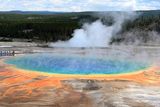Now Reading: Million-Year-Old Mammoth Tooth Reveals Oldest Host-Linked Bacteria DNA
-
01
Million-Year-Old Mammoth Tooth Reveals Oldest Host-Linked Bacteria DNA
Million-Year-Old Mammoth Tooth Reveals Oldest Host-Linked Bacteria DNA

Speedy Summary
- Bacteria, among Earth’s earliest life forms, evolved 4 billion years ago but are understood better through genetic data rather than fossils alone.
- DNA, being chemically unstable, rarely preserves over immense time periods. Advances in sequencing have pushed retrieval limits further.
- A study by Stockholm University and the Swedish Museum of Natural History recovered the oldest host-associated bacterial DNA from mammoth teeth over 1.1 million years old, published in Cell.
- The study identified six host-associated bacteria from mammoth samples among 310 microbial strains analyzed. Some strains may have been pathogenic and are similar to bacteria causing fatal diseases in modern African elephants today.
- Researchers reconstructed partial genomes of Erysipelothrix, marking the oldest host-associated microbial DNA record to date (1.1 million years).
- Findings suggest ancient microbes shaped adaptation, disease responses, and extinction processes in long-extinct megafauna like mammoths.
Image:
!Mammoth Tooth
(Image Credit: Photo: Love Dalén)
Indian Opinion Analysis
This groundbreaking research not onyl pushes scientific boundaries but also has broader implications for understanding evolutionary biology and disease mechanisms across time periods relevant to life on Earth today – including India’s ecological heritage. By reconstructing ancient bacterial genomes tied to extinct species like mammoths with parallels in modern elephants (found widely across India), the study raises important questions about how ancestral pathogens or microbiomes might inform contemporary wildlife conservation efforts.
India’s diverse landscapes harbor an unusual concentration of existing megafauna such as elephants which share evolutionary links with prehistoric species studied globally – this could allow exploratory partnerships between Indian researchers and global teams studying ancient DNA technologies for ecological insights into both past ecosystems and present wildlife survival strategies amidst changing climates.




























